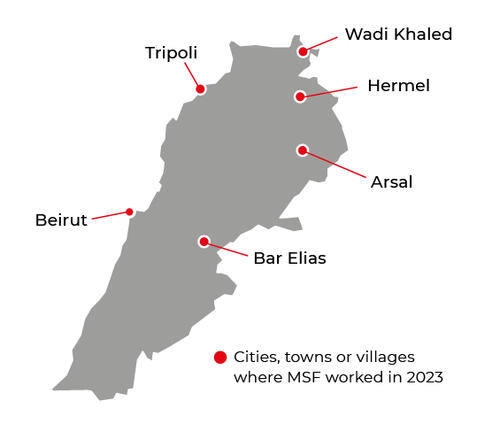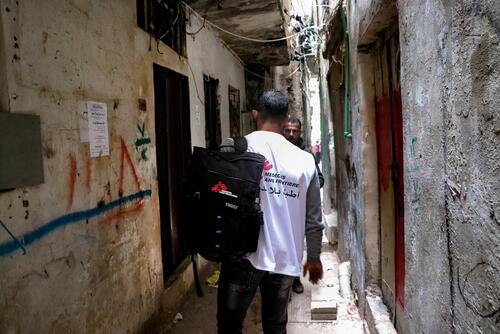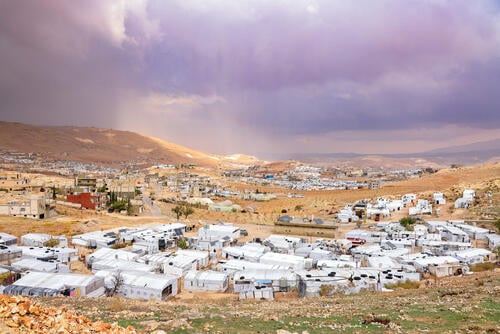Access to healthcare in the country is threatened by the pressure on the deteriorating public services on top of the soaring prices of private healthcare. Lebanon hosts more than 1.5 million Syrian and Palestinian refugees, in addition to approximately 250,000 migrant workers.
We have adapted our services in the past years to provide free, quality healthcare to many communities, including Lebanese people. We run and support health facilities in six governorates, providing general, paediatric, reproductive, and mental healthcare, as well as treatment for non-communicable disease, vaccinations, and health promotion.
Our activities in 2023 in Lebanon
Data and information from the International Activity Report 2023.
523
523
26.4 M€
26.4M
1976
1976


167,900
167,9
48,100
48,1
11,700
11,7

3,100
3,1
- Try a different country, year, format, or topic.
- Clear one or more filters
Contact us

Hamra main street, Domtex building, 5th floor
Beirut, Lebanon
Area zip code: 1103



